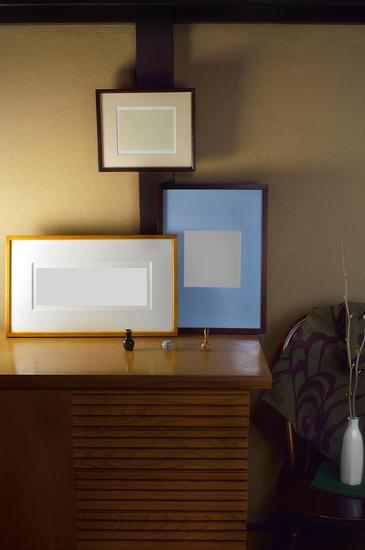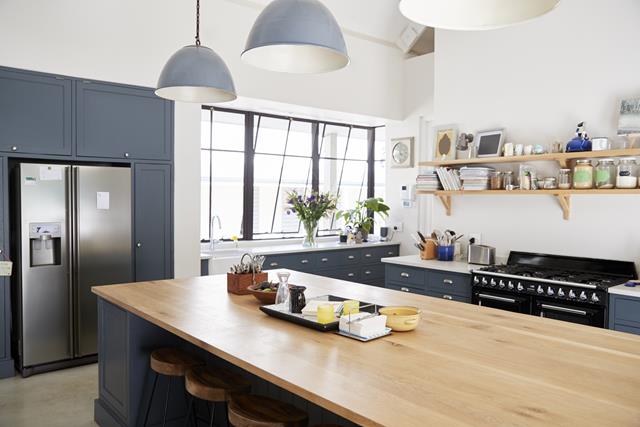Are you passionate about interior design and have a keen eye for home decor? If so, then starting a small home decor business might be the perfect venture for you. In this article, we will guide you through the essential steps to get your business off the ground and thriving. From finding your niche to setting up your online store, we’ll cover everything you need to know about starting a successful small home decor business.
Before diving into the specifics of finding your niche and sourcing products, it’s crucial to understand the ins and outs of the home decor industry and what sets your business apart. Identifying your unique selling point will be key to standing out in this competitive market. Whether it’s specializing in handmade artisanal pieces or offering sustainable and eco-friendly options, honing in on your niche will set the foundation for a thriving business.
In addition to finding your niche, thorough research and strategic planning are essential for success. Understanding your target market and creating a solid business plan will provide the roadmap for your small home decor business.
With these foundational elements in place, you’ll be well-equipped to navigate legal requirements, source products, establish a strong brand identity, and manage finances effectively. So let’s dive in and explore how you can turn your passion for home decor into a thriving business venture.
Finding Your Niche
When starting a small home decor business, the first step is to identify the specific area of home decor you want to focus on. This is known as finding your niche, and it involves determining what type of home decor products you want to specialize in. By honing in on a specific niche within the broader home decor market, you can differentiate your business and appeal to a targeted audience.
Evaluate Your Interests and Skills
One way to find your niche in the home decor industry is to evaluate your own interests and skills. Consider what types of home decor products you are passionate about and knowledgeable in. Whether it’s handmade ceramics, sustainable textiles, or vintage furniture, choosing a niche that aligns with your interests will make running your business more fulfilling.
Identify Market Gaps
Another approach to finding your niche is by identifying market gaps or areas with less competition. Research current trends in the home decor industry and look for opportunities where there may be unmet consumer needs. For example, if you notice a lack of modern bohemian-style home decor options in your local market, this could be an opportunity for you to fill that gap with your own products.
Consider Your Target Audience
Additionally, consider who your target audience is and what kind of home decor products they are seeking. Understanding the demographics, preferences, and lifestyle of your potential customers can help guide you in choosing a niche that will resonate with them. Whether it’s luxury home accessories for affluent homeowners or affordable minimalist decor for young professionals, tailoring your niche to cater to specific consumer segments can give your business a competitive edge.
Research and Planning
Before diving into the world of small home decor businesses, it’s crucial to conduct extensive research and careful planning. This involves understanding your target market and creating a solid business plan to guide your venture. Here are some key steps to consider in this important phase:
1. Identify your target market: Determine the specific demographics, preferences, and behaviors of your potential customers. Are you targeting young homeowners, apartment dwellers, or luxury home decorators? Understanding who you will be selling to is essential for tailoring your products and marketing efforts.
2. Analyze the competition: Research other small home decor businesses in your niche or location. Assess their strengths, weaknesses, pricing strategies, and customer base. This will help you identify gaps in the market that you can fill with unique offerings or better customer service.
3. Create a comprehensive business plan: A well-thought-out business plan acts as a roadmap for your small home decor business. It should include an overview of your company, market analysis, marketing strategies, financial projections, and operational plans. This document will not only guide your decision-making but also be essential when seeking funding from investors or financial institutions.
Proper research and planning are fundamental to the success of any small business, including a home decor venture. By understanding your target market and creating a detailed business plan, you can set a strong foundation for your future operations and growth opportunities.
Legal Requirements
When starting a small home decor business, it is crucial to understand the legal requirements and regulations that apply to your endeavor. Navigating the necessary permits, licenses, and regulations is an important step in ensuring that your business is compliant with the law and operates smoothly. One of the first things you will need to do is register your business and choose a legal structure, whether it’s a sole proprietorship, partnership, or corporation.
Depending on where you’re located, there may be specific permits and licenses required for conducting a home decor business. This could include zoning permits if you plan to operate from your home, sales tax permits for selling products, or health and safety compliance if you are creating or refurbishing items. Researching these requirements in advance can save time and potential problems down the road.
In addition to permits and licenses, it’s important to understand the regulations that govern your industry. This could involve compliance with consumer protection laws, copyright and trademark regulations for branding and designs, as well as any environmental regulations if you are producing or selling certain types of products.
Seeking legal advice or consulting with professionals who specialize in small business regulations can help ensure that you are meeting all legal requirements as you start and grow your home decor business.
| Permits & Licenses | Regulations |
|---|---|
| Zoning Permits | Consumer Protection Laws |
| Sales Tax Permits | Copyright & Trademark Regulations |
| Health & Safety Compliance | Environmental Regulations |
Sourcing Products
When starting a small home decor business, the quality and variety of your products will be essential to attract customers and keep them coming back. Finding reliable suppliers is crucial in maintaining a consistent inventory of high-quality items. Here are some steps to help you source products and build an attractive product inventory:
1. Determine Your Product Range: Before finding suppliers, decide on the specific types of home decor products you want to offer. Whether it’s handmade textiles, vintage furniture, or modern wall art, understanding your niche will guide your search for the right suppliers.
2. Research Potential Suppliers: Look for suppliers that align with your brand’s aesthetic and values. You can attend trade shows, visit local artisans and manufacturers, or search online directories to find potential suppliers. Consider factors such as price points, shipping costs, minimum order quantities, and return policies when researching suppliers.
3. Establish Relationships with Suppliers: Once you’ve identified potential suppliers, reach out to discuss their product offerings, pricing options, and terms of partnership. Building strong relationships with your suppliers is important for securing favorable terms and ensuring timely deliveries.
4. Create a Thoughtful Product Inventory: After finalizing agreements with your chosen suppliers, curate a product inventory that appeals to your target market while staying true to your brand’s identity. Balance trendy items with timeless pieces to cater to different customer preferences.
By following these steps and investing time in finding the right suppliers and creating an attractive product inventory, you’ll be well-positioned to launch a successful small home decor business that resonates with customers and sets you apart from the competition.
Marketing and Branding
Creating a strong brand identity is essential for any small home decor business. This involves developing a unique and memorable brand name, logo, and overall aesthetic that sets your business apart from competitors. Consider the values, mission, and vision of your brand and incorporate these into your marketing materials to connect with your target audience on a deeper level.
Effective marketing strategies are crucial for getting the word out about your home decor business. Utilize social media platforms such as Instagram, Pinterest, and Facebook to showcase your products and engage with potential customers. Influencer partnerships, collaborations with other businesses, and attending trade shows or local markets are also great ways to market your brand and products.
In addition to digital marketing efforts, consider traditional advertising methods such as print ads or local radio spots if they align with your target demographic. Email marketing campaigns can also be effective in reaching existing customers and nurturing leads. By diversifying your marketing strategies, you can maximize exposure for your small home decor business.
| Brand Identity | Marketing Strategies |
|---|---|
| Develop a unique brand name, logo, and aesthetic | Utilize social media platforms for product showcasing |
| Incorporate brand values into marketing materials | Consider influencer partnerships and local collaborations |
| Create memorable branding to stand out from competitors | Diversify marketing efforts through traditional advertising methods |
Setting Up Your Online Store
Building a User-Friendly Website
One of the most important aspects of starting a small home decor business is establishing an online presence through a user-friendly website. Your website should showcase your products in an appealing and easy-to-navigate way, with high-quality images and detailed descriptions.
Consider using platforms like Shopify or WooCommerce to create an e-commerce site that allows customers to browse, add items to their cart, and check out seamlessly. Additionally, ensure that your website is optimized for mobile devices, as many consumers shop on their phones or tablets.
Utilizing Social Media Platforms
In today’s digital age, social media is an essential tool for marketing and promoting your small home decor business. Create profiles on popular platforms like Instagram, Facebook, and Pinterest to showcase your products and connect with potential customers.
Use these platforms to not only display your products but also engage with your audience by sharing behind-the-scenes content, design inspiration, and customer testimonials. You can also take advantage of social media advertising to reach a larger audience and drive traffic to your website.
Implementing SEO Strategies
Search engine optimization (SEO) is crucial for improving the visibility of your online store. Research keywords related to home decor and incorporate them into your website’s content, product descriptions, and blog posts. This will help improve your ranking on search engine results pages, making it easier for potential customers to discover your business when they search for home decor products online.
Additionally, consider creating valuable content such as blog posts or videos that provide useful information about home decor trends or tips for decorating different spaces. This can help establish you as an authority in the industry while driving organic traffic to your website.
Managing Finances
Starting and running a small home decor business involves more than just having a keen eye for design. Managing finances is a critical aspect of ensuring the success and sustainability of your venture. Budgeting, pricing, and tracking expenses are all essential components of financial management that can make or break your business.
Budgeting is the process of creating a plan for how you will spend your money. It’s important to budget for both your business expenses – such as inventory, marketing, and website maintenance – as well as your personal finances if you’re relying on the income from your business. By creating a budget, you can ensure that you’re not overspending in any area and that you have enough money to cover all necessary expenses.
Setting prices for your products is another crucial element of managing finances for a small home decor business. You need to find the right balance between making a profit and offering competitive prices that will attract customers. Researching the market, understanding your target audience, and calculating all costs involved in producing and selling your products will help you determine the optimal pricing strategy.
Tracking expenses is also essential for maintaining financial health in your home decor business. This involves keeping detailed records of all the money coming in and going out of your business. By meticulously tracking expenses, you can identify areas where costs are too high and make adjustments as needed to improve profitability. Software programs or apps designed for small business finance management can be incredibly helpful in this regard.
Overall, effectively managing finances is crucial for the success of any small home decor business. By developing a thorough understanding of budgeting, pricing strategies, and expense tracking, you can ensure that your venture remains financially viable and profitable in the long run.
Developing Customer Service
In conclusion, starting a small home decor business can be an exciting and rewarding venture for creative entrepreneurs. By following the steps outlined in this article, you can successfully establish a niche within the home decor market, conduct thorough research and planning, navigate legal requirements, source products, create a strong brand identity, set up an online store, manage finances, and develop exceptional customer service.
These components are essential for building a loyal customer base and ensuring the success of your business.
Once your small home decor business is up and running, it is crucial to prioritize excellent service and communication with your customers. Building relationships with your clients and providing personalized attention will set you apart from competitors and keep customers coming back for more. By consistently delivering high-quality products and exceptional customer service, you can foster trust and loyalty among your customer base, leading to repeat business and positive word-of-mouth referrals.
As you develop your small home decor business, remember that ongoing improvement is key to long-term success. Keep an open line of communication with your customers to gather feedback on their experiences with your products and services.
Use this information to make necessary adjustments and enhancements to meet their needs and exceed their expectations. By continuously striving to improve the customer experience, you can build a strong foundation for your small home decor business to thrive in the competitive market.
Frequently Asked Questions
How Profitable Is Home Decor Business?
The profitability of a home decor business can vary depending on various factors such as market demand, competition, pricing strategy, and operational costs. Generally, the home decor industry can be profitable as people are always looking to improve their living spaces and make them more aesthetically pleasing.
By offering unique products or services and staying updated with the latest trends, a home decor business can be quite profitable.
How Do I Start My Own Home Decorating Business?
Starting your own home decorating business involves several steps. First, you need to conduct thorough market research to understand the demand and competition in your area. Then, it’s important to create a detailed business plan outlining your target market, offerings, pricing strategy, and marketing plan.
Additionally, you’ll need to consider legal requirements such as registering your business and obtaining any necessary licenses or permits. Building a strong network of suppliers and establishing an online presence can also help launch your home decorating business successfully.
What Do You Need to Start a Decorating Business?
To start a decorating business, you will need a combination of creativity, design skills, business acumen, and industry knowledge. It’s essential to have a good understanding of different design styles, color schemes, furniture trends, and interior decor materials.
You’ll also need to invest in tools such as sketching software or interior design software to visualize your ideas for clients. Additionally, having strong communication skills to effectively convey your ideas to clients and suppliers is crucial for success in the decorating business.

Hello, lovely readers! I’m Sheila Collins, and I’m delighted to be your trusted guide on this exciting journey of home improvement, design, and lifestyle. As the founder and editor-in-chief of Home Guide Blog, I’m passionate about all things related to homes, and I’m here to share my knowledge, experiences, and insights with you.





